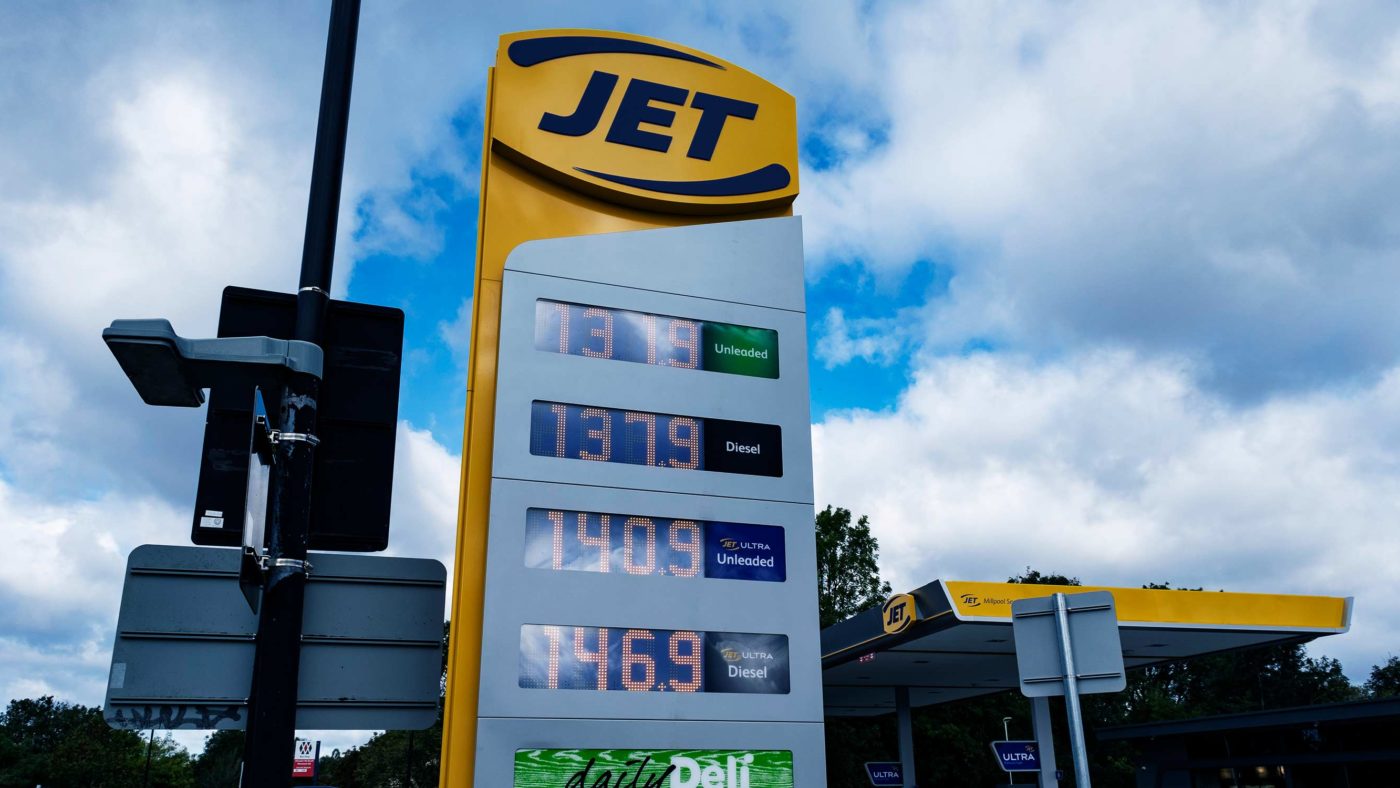With the country facing the prospect of a cost-of-living crisis, the Chancellor should freeze excise duties – particularly on fuel and alcohol – at the forthcoming Budget.
By convention, duties on fuel and alcohol rise in line with the retail price index (RPI) at each Budget. Currently, RPI inflation is at 4.8% which would mean the Budget adding 2.2% to the price of a typical bottle of wine, 3% to a case of beer, 3.1% to a standard bottle of whisky, and 3.4% to a similar bottle of gin. Meanwhile, a full tank of petrol would go up by 2.4%.
Such rises would mean that tax, including VAT, would make up 60% of the pump price of fuel, 55% of the price of the wine, 68% of the beer, and more than 70% of a bottle of spirits.
British excise duties are already high compared to other European countries, with beer and wine duty being the third-highest in Europe while spirits and petrol duty are fourth and seventh respectively.
Equally, despite convention, the Chancellor in fact has tremendous flexibility when it comes to setting excise duties. Gone are the days when excise duties rose automatically with RPI. Fuel duty has been frozen since 2009, and alcohol duties were frozen across the board in the March 2021 Budget – the eighth year out of nine that duties did not entirely track RPI.
The justification for imposing excise duties is usually to mitigate socially costly behaviour – not primarily to raise revenue. Nonetheless, fuel and alcohol duties are expected to contribute more than £38 billion to the Exchequer in the current fiscal year, amounting to approximately 5.25% of the country’s total tax take.
Still, while the Chancellor may be tempted to look to these taxes as a revenue-raiser, he must also be conscious of the greater challenge at hand: facilitating the economic recovery at a time when disposable incomes are already set to come under significant strain from an array of inflationary pressures, tax rises and, for some, the expiry of the temporary £20 uplift in Universal Credit.
Frankly, it is hard to miss the cost-of-living pressures that are increasingly hitting people: whether it’s the energy price cap increasing by £139 earlier this month, or supply disruptions pushing up grocery prices, or house prices rising by their highest monthly rate since 2007 last month. In addition to RPI inflation being at 4.8%, the latest Consumer Price Index (CPI) shows prices are up at 3.2%, with the Bank of England predicting it will go above 4% in the fourth-quarter of 2021.
Raising excise duties in this environment will further squeeze incomes, and disproportionately increase immediate budgetary pressures for poorer households who spend a greater share of their income on essentials like food and energy.
It’s also clear that excise duties are, in their current form, a rather anachronistic part of the tax system.
Fuel duty revenues have fallen from 2.2% of GDP in 1999-00 to a forecast 1.3% of GDP this year – and this trend looks set to accelerate the closer we get to 2030 amid the transition to electric cars. This points to the Government needing to explore other means to reflect the cost of driving though the tax system – ideally phasing out fuel duty and vehicle excise duty altogether, and replacing them with dynamic road pricing and an upstream carbon tax.
As for alcohol duties, the argument is even stronger: firstly, a government review of alcohol duty is already underway; secondly, freezing duty would help the hospitality industry, which was particularly impacted by the pandemic, as other forms of support are withdrawn; and thirdly, there is precedent for lower alcohol duties delivering above-expected revenues following recent budgets (see this CPS research for more).
The first of these points is particularly important from a tax policy perspective: in his March 2020 Budget, the Chancellor announced a comprehensive review of the system of alcohol duty structures. This review was a significant reason why he chose to leave excise duties unchanged then, and with the review not yet concluded the same argument is as relevant now. Moreover, the minister responsible at the time, Kemi Badenoch, described the current system as ‘highly inconsistent’ as well as being ‘complex – and arguably outdated’ in her foreword to the call for evidence.
Given that alcohol duty may be in line for fundamental reform, it makes particular sense to continue to freeze it now and defer any changes to the level of the tax until a new, fairer structure is put in place. Indeed, raising alcohol duties in line with RPI now would be actively unhelpful to future reform, since it would exacerbate the tax differences between various categories of booze, and make any subsequent adjustments designed to rationalise the system that much harder.
Ultimately, there is a strong economic and societal case for freezing motoring and alcohol duties – and perhaps other consumer taxes too – for a further tax year at the forthcoming Budget. In the midst of a developing cost of living crisis, and with already-announced tax increases set to squeeze incomes further from April, pressing ahead with RPI-linked duty increases will add insult to injury as far as many consumers are concerned.
The Chancellor froze fuel and alcohol duties at his March 2021 Budget. Next week, he should act again to protect households from rising costs.
Click here to subscribe to our daily briefing – the best pieces from CapX and across the web.
CapX depends on the generosity of its readers. If you value what we do, please consider making a donation.


